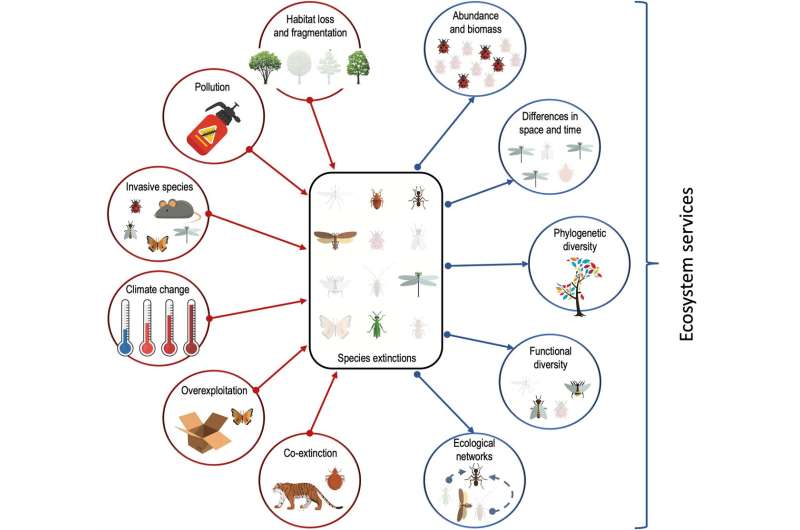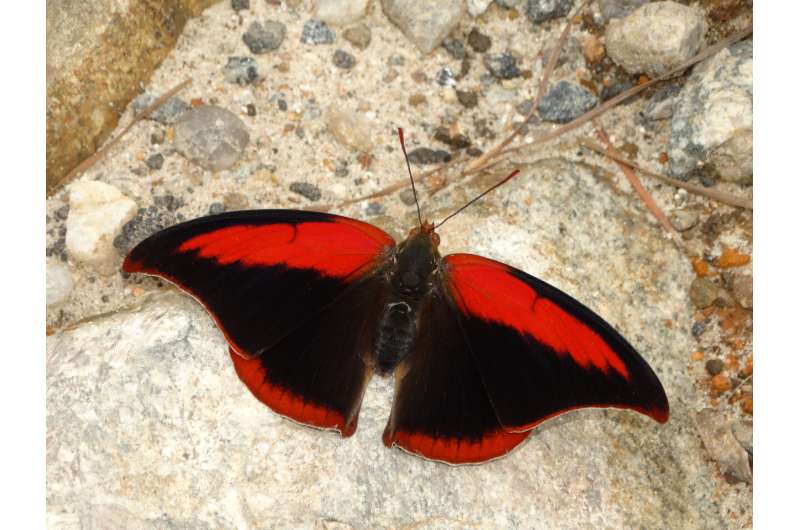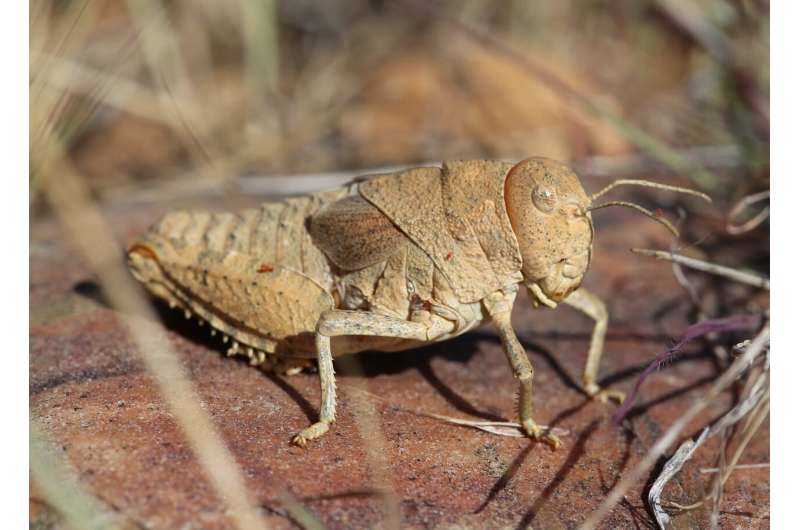Scientists warn humanity about worldwide insect decline

Insect declines and extinctions are accelerating in many parts of the world. With this comes the disappearance of irreplaceable services to humans, the consequences of which are unpredictable. A group of scientists from around the globe has united to warn humanity of such dangers.
Engaging civil society and policymakers is essential for the future and mutual well-being both of people and insects. In addition to mitigating climate change, an important aspect of the solution involves setting aside high-quality and manageable portions of land for conservation, and transforming global agricultural practices to promote species co-existence.
Humanity is pushing many ecosystems beyond recovery. As a consequence, unquantified and unquantifiable insect extinctions are happening every day. Two scientific papers by 30 experts from around the world discuss both the perils and ways to avoid further extinctions, intending to contribute to a necessary change of attitude for humanity's survival.
"It is surprising how little we know about biodiversity at a global level, when only about 10 to 20% of insect and other invertebrate species have been described and named. And of those with a name, we know little more than a brief morphological description, maybe a part of the genetic code and a single site where it was seen some time ago," says Pedro Cardoso, from the Finnish Museum of Natural History Luomus, University of Helsinki, Finland.
Habitat loss, pollution, harmful agricultural practices, invasive species that do not encounter borders, climate change, overexploitation and extinction of dependent species all variably contribute to documented insect population declines and species extinctions.
"With species loss, we lose not only another piece of the complex puzzle that is our living world, but also biomass, essential, for example, to feed other animals in the living chain, unique genes and substances that might one day contribute to cure diseases, and ecosystem functions on which humanity depends," confirms Cardoso.
The ecosystem functions he mentions include pollination, as most crops depend on insects to survive. Additionally, insects contribute to nutrient cycling through decomposition, as well as many other functions for which we have no technological or other replacement.

Practical solutions to mitigate insect apocalypse
The researchers also suggest possible practical solutions based on existing evidence gathered from around the world, which would help to avoid further insect population loss and species extinctions. These include actions such as setting aside high-quality and manageable portions of land for conservation, transforming global agricultural practices to promote species co-existence, and mitigating climate change.
Above all, communicating and engaging with civil society and policymakers is essential for the future and mutual well-being both of people and insects.

"While small groups of people can impact insect conservation locally, collective consciousness and a globally coordinated effort for species inventorying, monitoring and conservation is required for large-scale recovery" says Michael Samways, distinguished professor at Stellenbosch University, South Africa.
Ideas to help insects
- Avoid mowing your garden frequently; let nature grow and feed insects.
- Plant native plants; many insects need only these to survive.
- Avoid pesticides; go organic, at least for your own backyard.
- Leave old trees, stumps and dead leaves alone; they are home to countless species.
- Build an insect hotel with small horizontal holes that can become their nests.
- Reduce your carbon footprint; this affects insects as much as other organisms.
- Support and volunteer in conservation organizations.
- Do not import or release living animals or plants into the wild that could harm native species.
- Be more aware of tiny creatures; always look on the small side of life.
More information: Pedro Cardoso et al, Scientists' warning to humanity on insect extinctions, Biological Conservation (2020). DOI: 10.1016/j.biocon.2020.108426
Michael J. Samways et al. Solutions for humanity on how to conserve insects, Biological Conservation (2020). DOI: 10.1016/j.biocon.2020.108427
Journal information: Biological Conservation
Provided by University of Helsinki

















